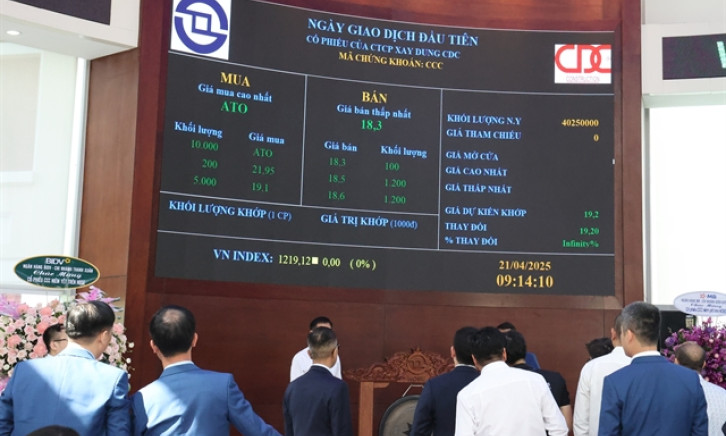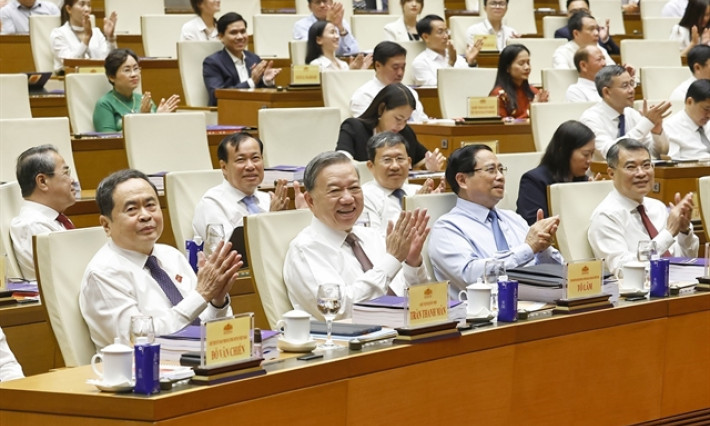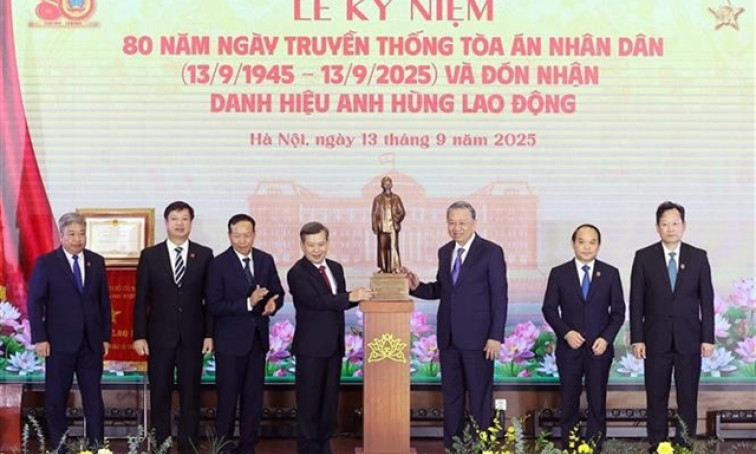A draf law expected to boost Việt Nam’s science and technology development
One of the key features of the proposed law is its broadened scope, which now includes the non-public sector.
The Ministry of Science and Technology (MOST) is taking a significant step forward in Việt Nam’s scientific and technological landscape by seeking public feedback on the draft Law on Science, Technology and Innovation (STI).
This proposed legislation aims to simplify and modernise the approval and implementation processes for scientific and technological projects, with the overarching goal of fostering dynamic growth in the nation’s science and technology enterprises.
Streamlining administrative processes
Minister of Science and Technology Huỳnh Thành Đạt has emphasised that the draft law on STI is meticulously designed to align with the Party’s resolutions, State policies and existing legislation.
It seeks to incorporate practical and impactful measures tailored to Việt Nam’s current context, while setting the stage for alignment with international standards. The draft is deeply rooted in the directives of the Politburo’s Resolution No. 57-NQ/TW, which focuses on fostering breakthroughs in science and technology, while advancing national digital transformation.
One of the key features of the proposed law is its broadened scope, which now includes the non-public sector. This change aims to stimulate research, technological development, and innovation across diverse fields, enhancing businesses' contributions to socio-economic development and accelerating the nation’s industrialisation and modernisation.
Additionally, the law envisions a reorganisation of public scientific and technological institutions, focusing on decentralisation, administrative simplification and heightened transparency, ethics and integrity.
The Government has also prioritised addressing existing institutional and policy barriers. Resolution No. 03/NQ-CP, issued on January 9, mandates ministries, sectors and local areas to identify and resolve obstacles hindering STI development, digital transformation and the cultivation of high-quality workers.
These efforts include revising the 2013 Law on Science and Technology and related regulations to better accommodate the inherent complexities and risks of scientific research and innovation.
Linking science and industry
A major highlight of the draft law is its emphasis on promoting the commercialisation of research outcomes. It proposes the removal of mandatory STI registration for all organisations, focusing instead on the establishment and registration of research and development (R&D) institutions.
Special provisions are also outlined for public R&D entities operating in State-prioritised fields, granting them greater autonomy and flexibility.
Deputy Minister of Science and Technology Bùi Thế Duy has underscored the importance of preferential policies for STI personnel.
Notably, researchers in public STI organisations will be empowered to establish and manage enterprises to bring their innovations to market.
These changes aim to foster a dynamic exchange of ideas, enabling scientists to collaborate with R&D institutions, universities and businesses to better align their work with market demands.
The draft law also proposes increasing funding for STI activities in universities. This funding will support not only infrastructure development but also research projects, academic conferences and other initiatives.
These measures are designed to encourage greater collaboration between academia and industry, ensuring that research is both practically relevant and commercially viable.
Financial constraints have long been a significant hurdle in Việt Nam’s scientific research and technological development. Many scientists have expressed frustration with having to balance administrative tasks alongside their research.
Director of the Legal Department at MoST Nguyễn Thị Ngọc Diệp noted that the draft law addresses these concerns by synchronising financial mechanisms with other legal frameworks.
"The proposed funding mechanisms are designed to accept risks, providing public institutions with greater financial autonomy," she told Sài Gòn Giải Phóng (Liberated Sài Gòn) newspaper.
Director of the Personnel Department at MoST Phạm Thị Vân Anh added that the draft law includes expanded incentives to attract both domestic and international talent.
Policies will focus on recruiting top-tier scientists, experts, and engineers – from within Việt Nam and abroad – to lead critical STI initiatives.
“We are optimistic that the transformative policies outlined in Resolution No. 57-NQ/TW will provide a golden opportunity for breakthroughs in STI development,” Anh said.
By tackling persistent administrative, financial, and institutional challenges, it seeks to unlock the full potential of the country's researchers, innovators and entrepreneurs, positioning itself as a key pillar in the development of a globally competitive Việt Nam.






